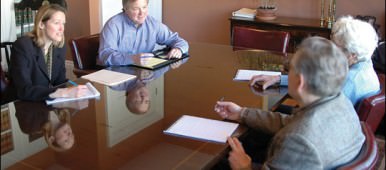
- Mediation
- Arbitration
- Court Neutrals
- Online Dispute Resolution
- Technology
- Court Decisions
- More
- Legislation
- Healthcare
- Guest Posts
- John DeGroote
- John C. Fleming
- Rick Freeman
- Professor Peter Friedman
- Honorable W. Royal Furgeson, Jr.
- James M. Gaitis
- Laura A. Kaster
- Professor John Lande
- Philip J. Loree, Jr.
- Michael McIlwrath
- F. Peter Phillips
- Professor Alan Scott Rau
- Professor Thomas J. Stipanowich
- Professor S.I. Strong
- Richard Webb
- Glen M. Wilkerson
- International arbitration
- Regulation
- Sports and Entertainment
- We’re Back!!!!Well, it’s been a while since we published and that is about to change. Since I spent much of last year becoming
 JAMS Welcomes Karl Bayer to its Panel of NeutralsJAMS, the world’s largest private alternative dispute resolution (ADR) provider, is pleased to announce that Karl Bayer
JAMS Welcomes Karl Bayer to its Panel of NeutralsJAMS, the world’s largest private alternative dispute resolution (ADR) provider, is pleased to announce that Karl Bayer Class Action Waivers in Arbitration Agreements: The Twenty-First Century Arbitration Battleground and Implications for the EU CountriesLinda S. Mullenix, Morris & Rita Atlas Chair in Advocacy at the University of Texas School of Law, has written “Class Ac
Class Action Waivers in Arbitration Agreements: The Twenty-First Century Arbitration Battleground and Implications for the EU CountriesLinda S. Mullenix, Morris & Rita Atlas Chair in Advocacy at the University of Texas School of Law, has written “Class Ac Picking the Proper Technological Tool for Problem-Solving in ArbitrationProfessor Amy J. Schmitz, John Deaver Drinko-Baker & Hostetler Chair in Law and Co-Director of the Translational Data An
Picking the Proper Technological Tool for Problem-Solving in ArbitrationProfessor Amy J. Schmitz, John Deaver Drinko-Baker & Hostetler Chair in Law and Co-Director of the Translational Data An
Recent Posts
SCOTUS Will Yet Again Decide Delegation of Arbitrability Question in Henry Schein Case
The Supreme Court of the United States has once again agreed to resolve a circuit split regarding whether it is up to a court or an arbitrator to decide questions related to arbitrability in the ongoing saga of Henry Schein, Inc. v. Archer and White Sales, Inc.
Continue reading...It’s Time For A New Trial Lawyer Narrative
For those who practice litigation, the narrative of the trial lawyer is part of our psyche.
Continue reading...NCSC’s ‘Jury Service and Accessing Court Services Remotely in a (Post) Pandemic America’ Webinar Now Available Online
On Thursday, the National Center for State Courts (“NCSC”) conducted a useful webinar titled, “Jury Service and Accessing Court Services Remotely in a (Post) Pandemic America: Results From a New National Public Opinion Poll.”
Continue reading...Academy of Court Appointed Masters Publishes 2020 Benchbook for Appointing Special Masters
If you’re thinking about using a special master, you and the judge you’re appearing in front of may find “Appointing Masters and Other Judicial Adjuncts,” published by the Academy of Court Appointed Masters (“ACAM”), to be quite useful.
Continue reading...Arbitration
The Northern District of Illinois has denied Vimeo’s motion to compel a proposed class action lawsuit alleging its recently acquired Magisto mobile web application violated the 12-year-old Illinois Biometric Information Privacy Act (“BIPA”) to arbitration.
Continue reading...Mediation
Ayelet Sela, Post-Doctoral Research Fellow, Bar Ilan University Faculty of Law, has published “Can Computers Be Fair? How Automated and Human-Powered Online Dispute Resolution Affect Procedural Justice in Mediation and Arbitration,” Ohio State Journal on Dispute Resolution, Forthcoming.
Continue reading...Healthcare Disputes
Elder Care Conflict
“For years, couples have hired divorce mediators to avoid court battles. Now growing numbers of mediators are specializing in disputes that relate to older adults, such as those over inheritances and caregiving responsibilities,” a Wall Street Journal article by Anne Tergesen reports. The field of elder mediation is growing as baby boomers look for help with aging parents. The article explains: Elder mediators help clients resolve conflicts that arise over a variety of issues, from how to share an inherited vacation home to whether Mom should turn over the car keys and who should arrange for transportation. Some families hire mediators on their own initiative, while others are referred—or ordered to attend—by courts. A second article “Speak for Yourself, While you Can” by Tom Lauricella on the Wall Street Journal advises parents to take the lead on discussions regarding life planning. The article states: “As unappealing as it sounds, parents should spell out to their kids their reasoning for how they are dividing their assets, along with their thinking for who will be the executor or have power of attorney.” A Smart Money article describes an elder care mediation case: Alexandria Skinner, a mediator and attorney in Columbia, S.C., describes a case where several siblings, living in different parts of the country, were at odds over the best way to care for their ailing father. One felt he was still able to live at home; a second advocated for a move to an assisted-living setting; a third argued that he be placed out of state. To make matters worse, the siblings distrusted one another’s motives — in part because a third party had been sowing dissension. In several mediation sessions, over a period of months, the siblings, led by Skinner, brokered an agreement. First, they would confide more in one another and less in outsiders. (Comments from a third party about any one sibling would immediately be shared with all.) Second, they would do the necessary homework — together — to determine the best arrangements for their dad. They eventually agreed on assisted living, but by the second session, they were already working as a team. “I tell people: If you can agree to walk in the room and begin talking, you’re 95 percent of the way there,” Skinner says. The website eldercaremediators.com lists a variety of training sessions focused on elder mediation and articles related to the topic.
Continue reading...American Academy of Orthopaedic Surgeons (AAOS) Supports ADR
The American Academy of Orthopaedic Surgeons (AAOS) issued a Position Statement on Medical Liability Reform by David H. Sohn, JD, MD, and S. Jay Jayasankar, MD stating: “The AAOS believes that broad reforms are necessary to compensate negligently injured patients promptly and equitably, enhance patient–physician communication, facilitate improvement of patient safety and quality of care, reduce defensive medicine and wasteful spending, decrease liability costs, and improve patient access to care.” The article references a survey of reasons patient’s sue, listing money as the fourth reason “behind disclosure, desire for apology, and prevention of future errors”. The authors state that when a case is litigated only 28 cents of each dollar goes to the plaintiff making litigation inefficient. It is also expensive. “The U.S. Department of Health and Human Services estimates that between $76 billion and $122 billion is spent per year directly on medical liability litigation. The indirect costs of litigation, due to defensive medicine, are believed to be at least equally costly.” The authors argue: Negotiation, early apology, mediation, and arbitration all offer more flexibility than traditional litigation. These methods also allow plaintiffs to hear explanations behind errors or complications, to hear a physician express remorse, and to settle claims for far less than litigation. After instituting early apology programs, for example, the University of Michigan saw yearly claims drop from 262 to 82 and the University of Illinois saw a 50 percent reduction in malpractice filings. The Colorado COPIC program uses ADR techniques to whittle settlement awards to a startlingly low average of $5,000. Mediation, in particular, has very high satisfaction rates among both plaintiffs and defendants. With mediation, plaintiffs feel they receive what they really want: an explanation and an apology. Interestingly, physician defendants also appreciate the open forums encouraged in ADR. It gives them an opportunity to explain to the plaintiff that they did nothing wrong, that complications are inherent risks of medicine, and that they still feel sorry that the complication occurred. For more blog posts supporting alternative dispute resolution in healthcare see here and here. Holly Hayes is a mediator at Karl Bayer, Dispute Resolution Expert where she focuses on mediation of health care disputes. Holly holds a B.A. from Southern Methodist University and a Masters in Health Administration from Duke University. She can be reached at: holly@karlbayer.com.
Continue reading...Legal Research
About Disputing
Disputing is published by Karl Bayer, a dispute resolution expert based in Austin, Texas. Articles published on Disputing aim to provide original insight and commentary around issues related to arbitration, mediation and the alternative dispute resolution industry.
To learn more about Karl and his team, or to schedule a mediation or arbitration with Karl’s live scheduling calendar, visit www.karlbayer.com.


















